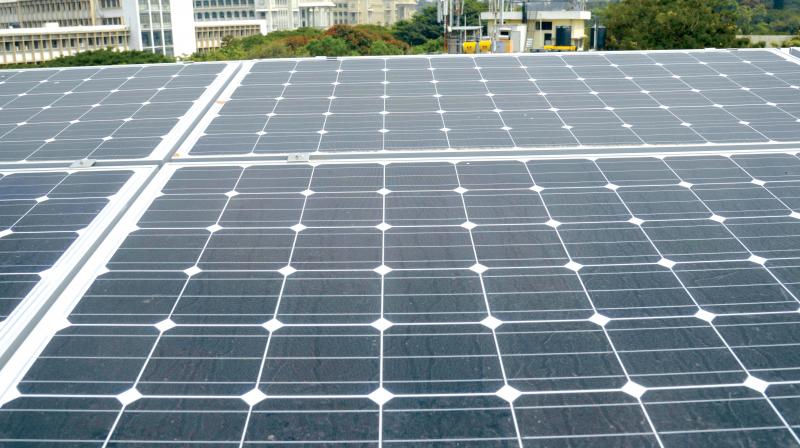Bengaluru: NDA 2 brightens solar energy sector

Bengaluru: If there is one environmental issue where NDA government's track record is proven, it is the renewable energy sector. The UDAY scheme was one of the significant steps towards the reform.
CleanMax Solar Chief Financial Officer Nikunj Ghodawat said there was a need for the National Level Policy to harness immense potential for rooftop solar in the country.
"In the first term NDA government has demonstrated its intent to carry out important structural reforms such as IBC, GST and UDAY Scheme for power sector, which are transformational. We expect that during NDA’s second term it will give required emphasis to further ease private sector participation in power sector by Amending the Electricity Act and reforms in DISCOMs. We believe such measures will attract additional capital in the sector and help government achieve its ambitious renewable energy target. It will accelerate India's adoption of decarbonised electricity in fight global warming," he said.
The BJP's manifesto also promised about boosting the country's renewable energy capacity and it is one of the sectors, whose achievements the party would want to highlight. The renewable energy capacity stands at 76.87 GW.
"We look forward to the elected Government's implementation of solar energy policies and are confident that renewable energy will be a key dimension in their vision as projected in the interim budget,” said Sunil Rathi, director, Waree Energies Ltd.
While we have seen some movement last year, with the implementation of Safeguard Duty, de-linked manufacturing tender and KUSUM scheme being introduced, we expect the Government to continue their support with primary focus on domestic manufacturers, he added.
"As the Safeguard Duty, which brought about interim relief in the industry, is expected to expire within a year, we believe that the much anticipated Anti-Dumping Duty on solar modules is need of the hour. The KUSUM scheme has already seen tremendous success with the installation of over 30 million agricultural pumps and over 20 million grid connected water pumps," he added.
Taking cue from the recent developments, Rathi believes that the primary focus would be on reducing the import of solar equipment from countries such as Thailand, China and Vietnam, thus strengthening rupee denomination and contributing to the nation's GDP.
"Moreover, key focus on the adoption of solar solutions by the transport sector, specifically electric vehicles, is expected to yield results. With technological evolution leading the sustainable efforts of the country, we are confident that when implemented, the Govt. will help attain energy security and generate employment," he remarked.

